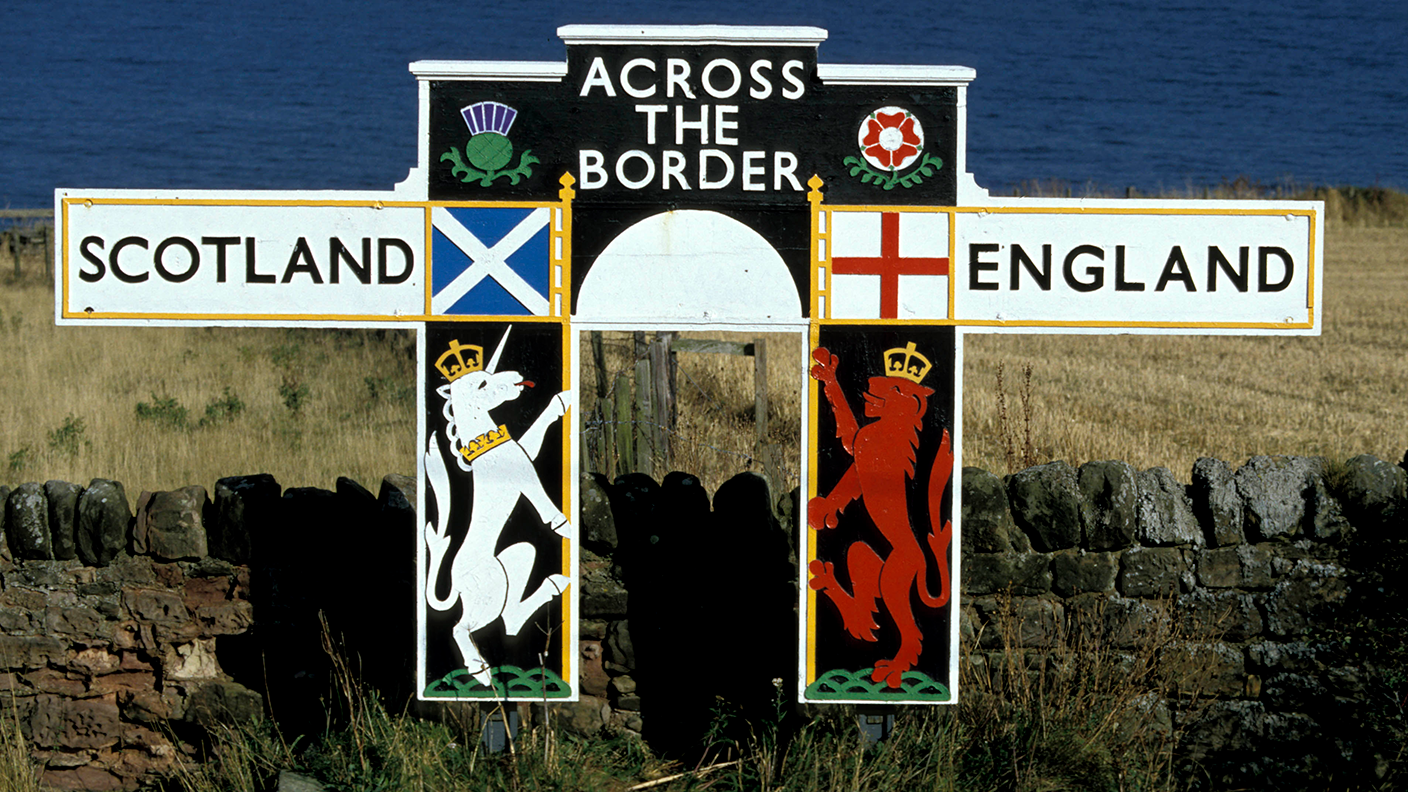25 September 1237: The English-Scottish border is set in law
The border between England and Scotland – having been fluid for many years – was legally defined on this day in 1237 (barring the odd skirmish over Berwick).


Get the latest financial news, insights and expert analysis from our award-winning MoneyWeek team, to help you understand what really matters when it comes to your finances.
You are now subscribed
Your newsletter sign-up was successful
Want to add more newsletters?

Twice daily
MoneyWeek
Get the latest financial news, insights and expert analysis from our award-winning MoneyWeek team, to help you understand what really matters when it comes to your finances.

Four times a week
Look After My Bills
Sign up to our free money-saving newsletter, filled with the latest news and expert advice to help you find the best tips and deals for managing your bills. Start saving today!
The English and the Scottish have always enjoyed a lively relationship. So, it's all the more surprising that the border between these two nations is one of the oldest still in existence.
Alexander II, King of Scotland, laid claim to territory in northern England. When England's King John upset his barons and they rebelled against him in 1215, Alexander saw his chance. Allied with the barons and (of course) the French, he dispatched a Scottish army and besieged Dover.
Victory seemed assured for the Scottish king, but then King John pulled off a stunning game changer – he died. The fickle barons declared their grievances resolved and sent the Scots and the French packing. The young King Henry III was crowned at Westminster.
MoneyWeek
Subscribe to MoneyWeek today and get your first six magazine issues absolutely FREE

Sign up to Money Morning
Don't miss the latest investment and personal finances news, market analysis, plus money-saving tips with our free twice-daily newsletter
Don't miss the latest investment and personal finances news, market analysis, plus money-saving tips with our free twice-daily newsletter
King Alexander returned to Scotland with little to show for his efforts. He didn't get the territory he wanted – instead, he got Henry's sister, Joan, as a consolation prize. On 25 September 1237, the two kings fixed the border with the Treaty of York.
The border more or less stands to this day, with the obvious exception of Berwick-upon-Tweed, retaken for the final time by the English in 1482. The tug of war between England and Scotland has seen the border town change sides 13 times.
But the diplomatic niceties weren't appreciated by everyone. The border reivers – the families who lived in the area either side of the border – carried on their centuries-old custom of pillaging. These people were a thorn in the side of both kingdoms. One of the biggest and fiercest families was the Armstrongs, hailing from what is today Cumbria.
Just one year before the signing of the treaty in 1236, one Adam Armstrong ended up in the dock in Carlisle, charged with killing a man. The clan was held in such fear that he was eventually pardoned.
Get the latest financial news, insights and expert analysis from our award-winning MoneyWeek team, to help you understand what really matters when it comes to your finances.

-
 Should you buy an active ETF?
Should you buy an active ETF?ETFs are often mischaracterised as passive products, but they can be a convenient way to add active management to your portfolio
-
 Power up your pension before 5 April – easy ways to save before the tax year end
Power up your pension before 5 April – easy ways to save before the tax year endWith the end of the tax year looming, pension savers currently have a window to review and maximise what’s going into their retirement funds – we look at how
-
 31 August 1957: the Federation of Malaya declares independence from the UK
31 August 1957: the Federation of Malaya declares independence from the UKFeatures On this day in 1957, after ten years of preparation, the Federation of Malaya became an independent nation.
-
 13 April 1960: the first satellite navigation system is launched
13 April 1960: the first satellite navigation system is launchedFeatures On this day in 1960, Nasa sent the Transit 1B satellite into orbit to provide positioning for the US Navy’s fleet of Polaris ballistic missile submarines.
-
 9 April 1838: National Gallery opens in Trafalgar Square
9 April 1838: National Gallery opens in Trafalgar SquareFeatures On this day in 1838, William Wilkins’ new National Gallery building in Trafalgar Square opened to the public.
-
3 March 1962: British Antarctic Territory is created
Features On this day in 1962, Britain formed the British Antarctic Territory administered from the Falkland Islands.
-
10 March 2000: the dotcom bubble peaks
Features Tech mania fanned by the dawning of the internet age inflated the dotcom bubble to maximum extent, on this day in 2000.
-
9 March 1776: Adam Smith publishes 'The Wealth of Nations'
Features On this day in 1776, Adam Smith, the “father of modern economics”, published his hugely influential book The Wealth of Nations.
-
 8 March 1817: the New York Stock Exchange is formed
8 March 1817: the New York Stock Exchange is formedFeatures On this day in 1817, a group of brokers moved out of a New York coffee house to form what would become the biggest stock exchange in the world.
-
7 March 1969: Queen Elizabeth II officially opens the Victoria Line
Features On this day in 1969, Queen Elizabeth II took only her second trip on the tube to officially open the underground’s newest line – the Victoria Line.